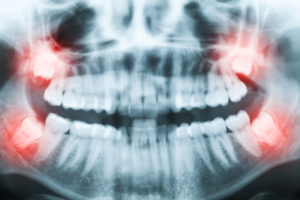
The most common cause of a toothache is a dental cavity resulting from tooth decay, but there are many dental issues that can cause a toothache.
Some of the main causes of a toothache range anywhere from fractures in the teeth to cavities. Also, a toothache can occur at any time even though you may not expect it. Oftentimes the pain of a toothache can be so unbearable that it will make you want to do anything you can to make it stop. Especially, when there are instances of nerve pain stemming from a toothache.
Why Nerve Pain Stems From a Toothache
When the nerve in your tooth is exposed to air this can lead to a toothache. This places an immense amount of pressure on your tooth. Tooth nerves can become exposed when there is a crack in the tooth.
Another instance of a toothache resulting from a nerve being exposed to air stems from the practice of rough brushing. This is because rough brushing causes the gums to recede which exposes the nerve to air. To prevent this from happening use care when you brush and visit your dentist regularly.
Consuming tobacco products whether it be smoking or chewing it are both practices that more than likely will lead to frequent toothaches. Smoking is generally bad for the health of your teeth, and it can lead to tooth decay which is a leading cause of toothaches. Also, chewing tobacco will ultimately rot your teeth, and lead to excruciatingly painful toothaches. The common factor as it relates to smoking or chewing tobacco is that both will eat away at your teeth’s enamel, and if left untreated can result in progressive tooth decay.
How To Prevent Toothaches
To help prevent toothaches you should visit your dentist as often as possible, and always follow their oral hygiene instructions. In addition, if you get a toothache you should make an appointment with your dentist as soon as possible. Doing so will allow them to determine the cause of the toothache early enough so that preventative measures can be taken to relieve your pain, save the tooth, and prevent further damage to your teeth and gums.
Discomfort From a Tooth Extraction
After a tooth extraction, it is not uncommon for pulp irritation to occur because it is related to an inflammation of the dental pulp tissue. Therefore, it’s good to be aware that it’s a common occurrence, but it should not deter you from regularly visiting your dentist. Also, no matter how well your filling or crown was done, any of the materials used to fix the tooth can cause you some discomfort or pain in the future.
What Should I Do After A Tooth Extraction?
There are several restorative options that could be great options for you following a tooth extraction:
Dental bridges:
A set of teeth that link one tooth to the nearest tooth
Dental implants:
A phenomenal option that offers you a brand-new smile by replacing missing tooth with very natural looking, fully functional teeth that are customized specifically for your mouth and smile.
The dental implantation process starts with the dental professional taking images of your teeth as a foundation to create customized implants. Then, your implants are created specifically for you and your new smile is revealed! However, for maximum success, selecting the best dental professional with advanced experience is a must.
Who Can Help with Toothaches And Extractions
Dr John Wewel and the skilled team at Midwest Oral Surgery and Dental Implants have extensive experience in dental implant placement, and offers comforting services to ease any dental anxiety, including IV sedation and general anesthesia. Dr Wewel carefully plans your treatment from start to finish, including an in-depth examination of your teeth using modern technology such as intraoral cameras and remedies for missing bone tissue, which must be available in a strong capacity for dental implant success.
Get excited for your brand-new smile! Schedule an appointment with Dr Wewel and the team at Midwest Oral Surgery and Dental Implants in Omaha, NE today to get started!

